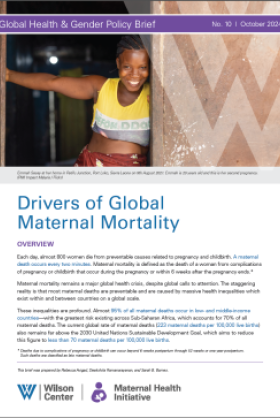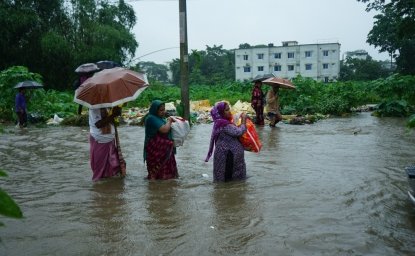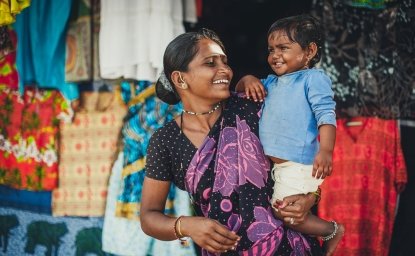Global Health and Gender Policy Brief: Drivers of Global Maternal Mortality


Each day, almost 800 women die from preventable causes related to pregnancy and childbirth. A maternal death occurs every two minutes. Maternal mortality is defined as the death of a woman from complications of pregnancy or childbirth that occur during the pregnancy or within 6 weeks after the pregnancy ends.*
Maternal mortality remains a major global health crisis, despite global calls to attention. The staggering reality is that most maternal deaths are preventable and are caused by massive health inequalities which exist within and between countries on a global scale.
These inequalities are profound. Almost 95% of all maternal deaths occur in low- and middle-income countries—with the greatest risk existing across Sub-Saharan Africa, which accounts for 70% of all maternal deaths. The current global rate of maternal deaths (223 maternal deaths per 100,000 live births) also remains far above the 2030 United Nations Sustainable Development Goal, which aims to reduce this figure to less than 70 maternal deaths per 100,000 live births.
In a new policy brief, Drivers of Global Maternal Mortality, The Wilson Center’s Maternal Health Initiative examines the current state of maternal deaths around the world—as well as their key causes. We focus on global trends that create a negative impact on maternal health and mortality rates, and conclude by offering recommendations to address underlying systemic causes and social determinants of maternal deaths, and what is necessary to lower global maternal mortality rates.
*Deaths due to complications of pregnancy or childbirth can occur beyond 6 weeks postpartum through 52 weeks or one year postpartum. Such deaths are classified as late maternal deaths.
Authors

Maternal Health Initiative
Despite global attention and calls to action, women continue to die while giving birth. The Maternal Health Initiative (MHI) leads the Wilson Center’s work on maternal health, global health equity, and gender equality. MHI works to connect issues critical to global health and women’s empowerment to foreign policy and US leadership, with a focus on improving the lives of women, adolescents, and children around the world. Through collaborations with policymakers, academia, donors, and practitioners, MHI produces cutting-edge research, fosters cross-sectoral engagement, increases awareness of key issues, and informs US leadership on solutions for ending maternal and newborn deaths and addressing gender-based global health issues. Read more

Explore More
Browse Insights & Analysis
Moving Beyond Fertility Targets




